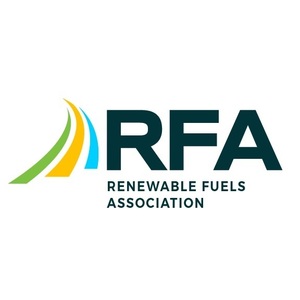New grants support award-winning RFA safety programs

November 11, 2022
BY Renewable Fuels Association
The Renewable Fuels Association has again received grant funding to continue to support its safety education program through on-site seminars and Internet webinars. Both grants were received via the association’s work with TRANSCAER, a voluntary national outreach program that focuses on assisting communities to prepare for and respond to a possible hazardous material transportation incident.
A $25,000 grant from the Federal Railroad Administration will support eight ethanol safety seminars and four “train the trainer” webinars for first responders, and a $40,432 Community Safety Grant from the Pipeline and Hazardous Materials Safety Administration (PHMSA) will fund four Ethanol & Steel Drum Safety seminars in conjunction with the Industrial Steel Drum Institute.
Advertisement
Advertisement
“These federal funds will provide the Renewable Fuels Association with the opportunity to further their training and outreach initiatives to emergency responders in communities across the United States. Through federal grant funding the RFA has already updated their Ethanol Safety Training program, made their ethanol program available online in Spanish, and offered numerous in-person and virtual learning opportunities,” said Erica Bernstein, Director of Outreach, CHEMTREC and TRANSCAER.
“The RFA prioritizes safety in the renewable fuels industry, and we consider it our mission to help and provide the best resources available to our ethanol plants and the emergency response community so they can have safe work environment and keep the communities they support safe,” said Missy Ruff, RFA Director of Safety and Technical Programs. “We appreciate the continued support these grants provide to ensure emergency responders have the resources and practices in this life-saving work in properly responding to ethanol emergencies. We wouldn’t be able to give them the safety resources and training without it.”
Advertisement
Advertisement
In 2022, more than 1,200 attendees were trained via 34 training opportunities supported by RFA. Since its inception in 2010, RFA’s safety program is responsible for training over 15,000 individuals and conducting nearly 400 training sessions and events. For more information on RFA’s work in this area, visit the Ethanol Emergency Response website at www.ethanolresponse.com, where the training programs conducted in the seminars and webinars can be seen.
Related Stories
The U.S. Energy Information Administration maintained its forecast for 2025 and 2026 biodiesel, renewable diesel and sustainable aviation fuel (SAF) production in its latest Short-Term Energy Outlook, released July 8.
XCF Global Inc. on July 10 shared its strategic plan to invest close to $1 billion in developing a network of SAF production facilities, expanding its U.S. footprint, and advancing its international growth strategy.
U.S. fuel ethanol capacity fell slightly in April, while biodiesel and renewable diesel capacity held steady, according to data released by the U.S. EIA on June 30. Feedstock consumption was down when compared to the previous month.
XCF Global Inc. on July 8 provided a production update on its flagship New Rise Reno facility, underscoring that the plant has successfully produced SAF, renewable diesel, and renewable naphtha during its initial ramp-up.
The USDA’s Risk Management Agency is implementing multiple changes to the Camelina pilot insurance program for the 2026 and succeeding crop years. The changes will expand coverage options and provide greater flexibility for producers.
Upcoming Events










